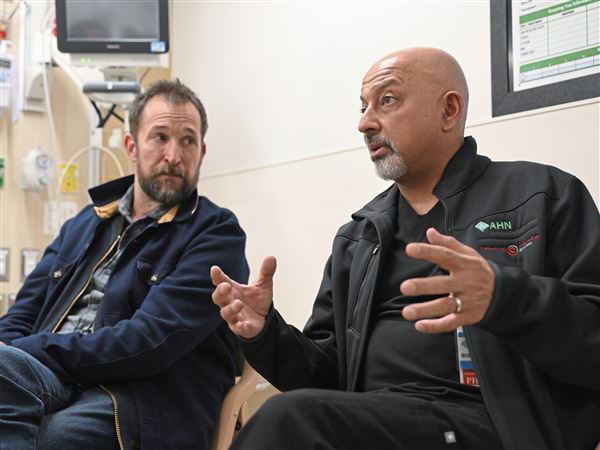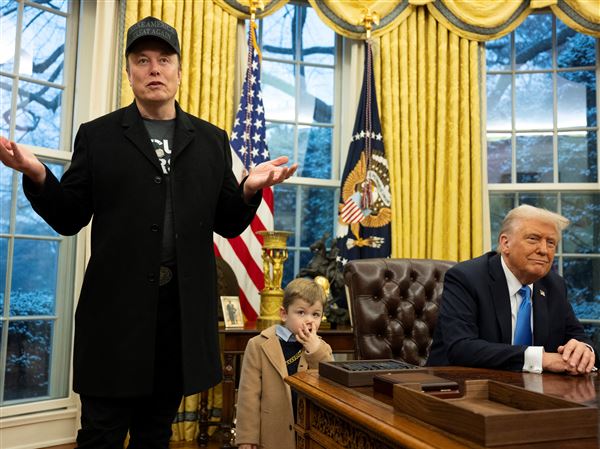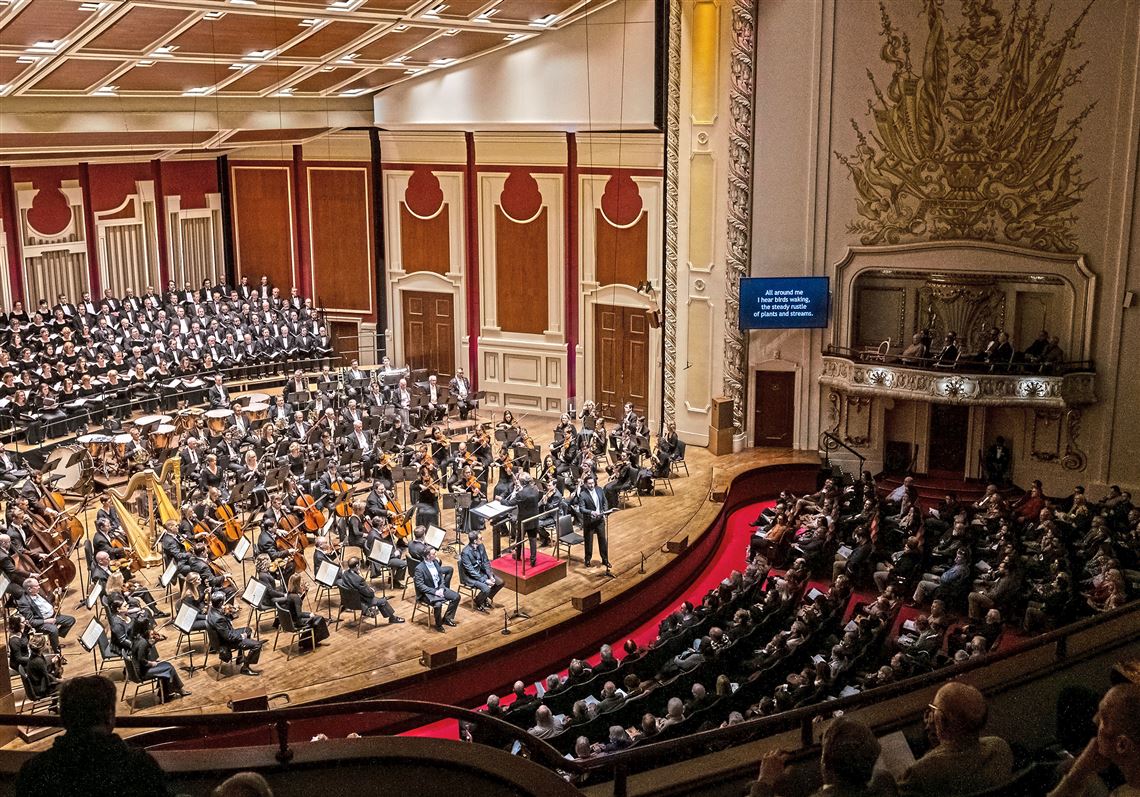After nearly four years of strong fundraising, increasing subscriptions and unprecedented artistic accolades, the Pittsburgh Symphony Orchestra was poised to deliver an exceptional 125th anniversary season beginning in the fall.
Then a global pandemic struck.
The symphony, now facing significant losses in revenue, began bandying a phrase not heard since an acrid 2016 labor dispute between musicians and the administration: salary cuts.
On Monday, the PSO announced salary reductions for both top executives and musicians in combination with further concert cancellations and postponements due to COVID-19.
The difference between now and 2016, however, is chasmic.
“Musicians have volunteered the reductions that we’re implementing,” said PSO President and CEO Melia Tourangeau during a phone call. “We really appreciate the extraordinary efforts the musicians are making.”
Ms. Tourangeau and music director Manfred Honeck have volunteered a 25% reduction in salary and compensation, respectively. All musicians have volunteered a 10% salary reduction for the months of May and June and 20% reduction for the months of July and August, which reverts to 10% if the orchestra is able to return to performing at that time.
For PSO musicians, a 10% reduction in base salary reduces salary to $91,062, although a significant number of the musicians earn more than base salary and supplement their income by teaching either privately or at local universities.
“The musicians felt it was the responsible thing to do,” said violinist Susanne Park, chair of the musicians committee, who said that the organization would save $500,000 due to the reduction in musician salaries.
“We’re all in this together,” she said.
Additionally, administrative staff with salaries of $100,000 or more will see a 10% salary reduction in May, and the organization also is delaying construction projects scheduled to begin this summer at Heinz Hall until 2021.
Other orchestras around the country as well as local organizations have instituted similar strategies or even furloughed musicians and staff altogether, citing severe losses due to COVID-19.
The Pittsburgh Symphony received a $4.5 million Payment Protection Program loan from the federal government to shore up payroll and necessary expenses. Ms. Tourangeau said the loan as well as the salary concessions are helping to save jobs.
At the end of the loan period at the end of June, additional salary reductions will be implemented, according to the release. No employees with a salary under $60,000 will be affected.
Ms. Tourangeau said the organization, which has already cut costs to just salaries, benefits, insurance and utilities, is aiming to save $1 million between now and the end of August, the end of the fiscal year for the orchestra.
“Obviously all our budgeted numbers are obsolete at this point, so we’re looking at this strictly on a cash in and out basis,” Ms. Tourangeau said. Currently, the organization expects to burn about $2.5 million to $3 million per month.
Concerts have been either canceled or postponed through June 14 to date. The symphony continues to provide digital content while its hall is dark, ranging from brief performances from musicians at home to educational videos and practice tips for children and full concert recordings hosted by Mr. Honeck. The content is available for free at pittsburghsymphony.org.
One bright bit of news: Optimistic listeners are continuing to subscribe to the 2020-21 season, and some have donated the cost of tickets from canceled performances or even made additional donations.
It is too soon to project the long-term ramifications of COVID-19 on the orchestra or when salaries will return to current levels.
“Of course nobody is happy about this, but we’re trying to retain jobs,” Ms. Tourangeau said. “We’re fighting for the future of the organization.”
Jeremy Reynolds: jreynolds@post-gazette.com or 412-263-1634; twitter: @Reynolds_PG. Mr. Reynolds’ work at the Post-Gazette is supported by a grant from the San Francisco Conservatory of Music, Getty Foundation and Rubin Institute.
First Published: April 27, 2020, 10:53 p.m.

















